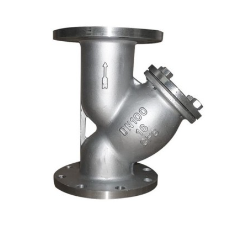120V Electric Actuator for Efficient Motion Control Systems and Applications
Understanding Electric Actuators A Focus on 120V Models
Electric actuators are essential components in various industrial and commercial applications, serving to control the movement of machinery and mechanisms through electrical signals. Among the different types and voltage ranges, 120V electric actuators have gained significant popularity due to their versatility, efficiency, and compatibility with standard electrical systems in many regions. This article examines the features, benefits, and applications of 120V electric actuators.
What is an Electric Actuator?
An electric actuator is a device that converts electrical energy into mechanical motion. It typically consists of an electric motor, gears, and control electronics. The motion generated can be linear or rotary, depending on the specific design of the actuator. Electric actuators are commonly used in automation, robotics, process control, and many other applications where precise movement is required.
Why Choose a 120V Electric Actuator?
One of the main advantages of 120V electric actuators is their compatibility with common electrical systems found in homes and many businesses. This voltage is standard in regions like North America, making it easier to integrate these actuators into existing systems without the need for additional transformers or power supplies. Moreover, 120V actuators generally have simplified wiring, reducing installation time and costs.
Key Features of 120V Electric Actuators
1. Variety of Designs 120V electric actuators come in various configurations—linear actuators for straight-line movement and rotary actuators for rotational tasks. This diversity allows engineers and designers to select the right type for their specific needs.
2. Control Options Many 120V electric actuators can be controlled remotely via switches, relays, or advanced control systems, allowing for automation and integration into larger systems. Some models also feature feedback mechanisms that provide information on position and movement, enhancing precision and control.
3. User-Friendly Operation Electric actuators are often easier to operate compared to pneumatic or hydraulic alternatives. They require less maintenance and eliminate the need for compressed air or hydraulic fluids, which can be costly and cumbersome to manage.
electric actuator 120v

4. Energy Efficiency Modern electric actuators are designed to be energy-efficient, minimizing power consumption while providing optimal performance. This is particularly beneficial in applications where actuators are used frequently or continuously.
5. Safety Features Many 120V electric actuators are equipped with built-in safety features, such as overload protection, thermal protection, and emergency stop functions. These enhancements help ensure safe operation, particularly in industrial settings.
Applications of 120V Electric Actuators
The versatility of 120V electric actuators allows them to be used in numerous applications across various industries. Some common use cases include
- Industrial Automation In manufacturing environments, electric actuators are used to automate processes, such as assembly lines or material handling systems. They improve efficiency and reduce the need for manual labor.
- HVAC Systems Electric actuators play a vital role in controlling dampers, valves, and other components in heating, ventilation, and air conditioning systems. They help maintain temperature control and ensure optimal energy usage.
- Robotics In robotic applications, electric actuators are integrated to provide movement and control for robotic arms, grippers, and other components, allowing for precise manipulation of objects.
- Home Automation More homeowners are adopting electric actuators for automated window shades, gates, and smart home features. These devices enhance convenience and accessibility.
Conclusion
120V electric actuators are a practical choice for a variety of applications due to their compatibility with existing electrical systems, ease of use, and energy efficiency. As technology continues to advance, these devices will likely play an increasingly significant role in automation and control across multiple sectors. Understanding the features and benefits of 120V electric actuators can help businesses and individuals make informed decisions when selecting the right actuator for their needs. Whether in industrial applications or smart home systems, these versatile devices are here to stay.
-
3-types-of-check-valves-maintenance-tipsNewsAug.23,2025
-
ball-valves-types-with-trunnion-mounted-designNewsAug.23,2025
-
butterfly-valve-company-production-capabilitiesNewsAug.23,2025
-
fisher-globe-valve-technical-specificationsNewsAug.23,2025
-
types-of-gaskets-for-flanges-selection-guideNewsAug.23,2025
-
wedge-gate-valve-suppliers-quality-standardsNewsAug.23,2025
-
Breakthrough in Domestic Low Temperature Valve Technology in ChinaNewsAug.18,2025




